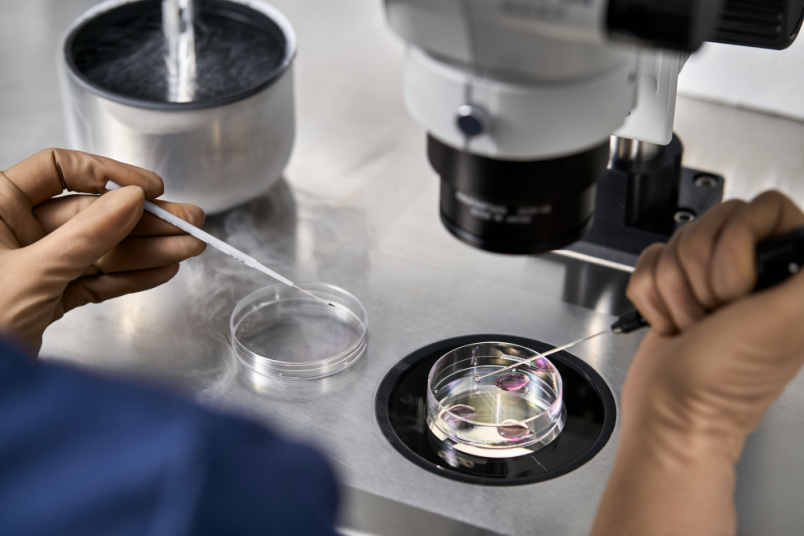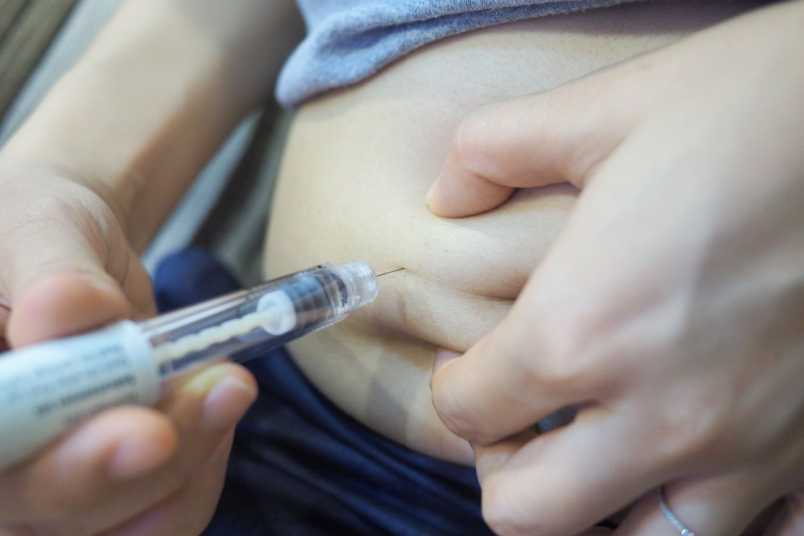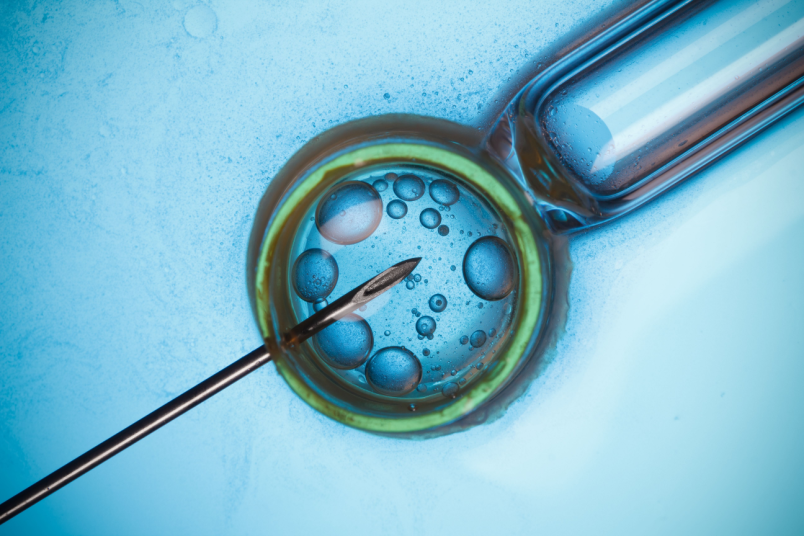In-vitro fertilization is the process of fertilization where an egg is combined with a sperm under in vitro or laboratory conditions. This technique is a boon for all those childless couples who have failed to conceive and give birth to a baby through the natural process. IVF is especially beneficial in case of PCOS, blocked uterine tubes, fibroids, endometriosis, low ovarian reserve, and poor egg or sperm health. However, sometimes this procedure may not work out as planned and result in a failed IVF.
Common reasons for IVF failure

This section talks about the many reasons that can contribute to a failed IVF procedure. Each of these causes of failure are dealt with in detail as mentioned below:
- Age of female:
Women above the age of 35 often find it difficult to conceive. The quality and quantity of the egg also deteriorate with advancing age, making your chances of becoming pregnant less. It is noted that live birth rates for IVF are only 40% for women above the age of 35 years.
- Quality of embryo:
This is one of the leading causes of IVF failure. The embryos may appear to be healthy under laboratory conditions but they fail to get implanted into the uterus as they do not get the right environment to grow.
- Ovarian response:
IVF treatment requires a woman to daily inject a fertility hormone called follicle stimulating hormone (FSH). This hormone is responsible for increasing egg production. Sometimes, the woman’s ovaries do not respond in the way expected and thus, fail to produce multiple eggs for collection. Older women are more prone to have this condition of low ovarian reserve.
- Implantation failure:
If the egg fails to get implanted in the uterus, the IVF fails. Several reasons could contribute to the failure of implantation including a premature increase in progesterone levels, infection of the uterus, presence of uterine polyps, or an endometrial lining that is too thin.
- Autoimmune disorders:
An autoimmune disorder can also cause the embryo implantation to fail as the antibodies may start attacking healthy cells or tissues. In the case of IVF (embryo implantation), the immune system may mistakenly recognize the embryo as invading tissues and attack it.
- Chromosomal issues:
It is characterized by the presence of an extra or missing chromosome and is often, one of the major causes for IVF implantation failures. Women in their mid or late 30s are most likely to develop chromosomal abnormalities. Therefore, women who have had multiple implantation failures, are generally advised to undergo preimplantation genetic screening.
- Sperm abnormality:
Any irregularity in the structure of the sperm will lead to an unfertilized egg as the sperm fails to penetrate the egg’s outer membrane. This results in the failure of the IVF procedure.
- Lifestyle:
Unhealthy lifestyle practices such as smoking that fertility specialists advise to get rid of in case of natural pregnancies, also apply to women who undergo an IVF. Consumption of alcohol and having a bad nutritional diet are also contributing factors to multiple conception failures. IVF cycle outcomes can also be affected if the woman undergoing IVF is underweight or overweight.
After IVF failure: What next?

If your first IVF cycle has failed, it may be useful to find out the reason behind its failure. It may have been due to the woman’s maternal age, cause and duration of infertility, history of previous pregnancies, male factor (sperm count and quality), and lifestyle influence. The younger the age of the woman, the greater is the possibility of an IVF to succeed. A woman in her 20s has 60-70% higher chances of conceiving in the very first in-vitro cycle. In case of a first-time IVF failure, your fertility specialist would generally recommend you to undergo another cycle because with every cycle, the chances of a woman to conceive become more.
In case of two failed in-vitro cycles, the couple needs to undergo another cycle, after determining the cause of failure during the previous two cycles. However, a third-time IVF failure can only mean an underlying condition that is disrupting the in-vitro implantation, leading to repeated failure. In such cases, it is advisable to opt for a more specific and advanced pregnancy treatment.
Advanced treatments after multiple IVF failures

Despite having recurrent IVF failures, there is still hope of conceiving with the other advanced treatment options now available. These pregnancy procedures can be carried out once your fertility specialist has analyzed your previous cycles to rule out the reason behind the IVF failure.
- Frozen embryo transfer:
FET is a procedure in which healthy embryos (blastocysts) from a previous in-vitro cycle are frozen and preserved for use at a later time. This technique is fast gaining popularity over conventional in-vitro cycles.
- Intracytoplasmic sperm injection:
Often abbreviated as ICSI, this is an advancement in the conventional IVF procedure. During this procedure, the egg is directly fertilized by injecting with a single live sperm. ICSI is a good option for couples where the male suffers from male factor infertility.
- Intracytoplasmic morphologically-selected sperm injection:
IMSI is another advancement in the traditional IVF procedure. It is similar to ICSI except that in IMSI, the sperm is first analyzed under high magnification to select only the sperm which has the best morphology. This procedure is helpful in case the male partner’s sperm has quality issues.
Treatment of immunological causes of infertility before proceeding with the next cycle.
Preimplantation genetic testing of embryos for chromosomal abnormalities before embryo transfer.
With the latest medical advancements in the field of fertility treatment, it is now possible for a woman to conceive in spite of multiple IVF failures. However, it is important to let your fertility specialist run a battery of tests on you and your partner to ascertain the cause behind IVF failure. Your desire to become parents is no longer a dream!
NU Fertility at NU hospitals is the best place for IVF failure treatment in Bangalore, India. The fertility specialists here not only make it possible for you to conceive using IVF, but also rule out IVF failure reasons. Once the reason is known, they take you through the best possible treatment so that your wish of becoming a parent turns true. Visit NU Fertility in case you have any issues in conceiving through IVF as this is the best place for infertility treatment in Bangalore.
Diagnosis of vaginismus
Your healthcare provider will ask you questions about your symptoms, medical, and sexual history. A pelvic examination can help determine if there are any other issues or the presence of muscle spasms. A topical numbing cream may be applied on the outside of your vagina prior to the pelvic exam to reduce discomfort.
References:
1. Failed IVF Cycles: Reasons, What to Do Next, and Tips for Success. Grace Fertility. https://gracefertility.in/3-failed-ivf-cycles-what-next/. Accessed on 5 October 2023.
2. IVF Failure- Why Did My IVF Fail? The Fertility Foundation. https://fertilityfoundation.org/ivf-failure-why-did-my-ivf-cycle-fail/. Accessed on 5 October 2023.
3. Weathering the Storm: What to Do After Your First Failed IVF-When and How to Try Again? India IVF. https://www.indiaivf.in/blog/first-ivf-failed-what-next-when-to-try-again/. Accessed on 5 October 2023.
4. WHY DOES IVF FAIL? The Fertility & Gynaecology Academy. https://www.fertility-academy.co.uk/blog/why-does-ivf-fail/. Accessed on 5 October 2023.
Author: Dr. Sneha J



